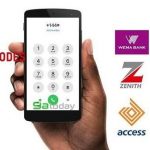Starting Wednesday, June 18, 2025, telecom subscribers in Nigeria will begin paying directly for Unstructured Supplementary Service Data (USSD) sessions as mobile network operators implement a new billing model. The move follows directives from the Nigerian Communications Commission (NCC), developed in partnership with the Central Bank of Nigeria (CBN) and key stakeholders.
According to a statement by the Association of Licensed Telecommunications Operators of Nigeria (ALTON), signed by its Chairman and Publicity Secretary, the shift to End-User Billing (EUB) will see customers charged N6.98 per 120 seconds, deducted from their airtime balances. Subscribers will be prompted to opt in and approve the deduction before any charge is made, and billing will apply only to successful USSD sessions.
ALTON clarified that this change does not affect the availability or performance of USSD banking services, provided users have sufficient airtime. The association emphasized that USSD remains crucial for extending financial access to unbanked and underbanked populations.
The previous corporate billing structure had telecom operators billing banks directly, a model that led to disputes, service disruptions, and debt accumulation. By the end of 2024, the disagreement had escalated into a N250 billion debt standoff between banks and telcos. In response, the CBN and NCC jointly introduced the EUB model, mandating that only banks meeting specific regulatory and operational standards could participate in the migration.
To enforce compliance, the NCC had earlier threatened to disconnect defaulting banks from USSD platforms. On January 15, the commission ordered telcos to cut off USSD codes of nine indebted banks by January 27. MTN Nigeria later confirmed receiving N32 billion out of N72 billion owed as partial payment from banks.
ALTON urged subscribers to contact their telecom providers for network-related issues and banks for transaction matters. It also encouraged customers to explore alternative digital banking channels, including mobile apps, internet banking, and ATMs, which remain unaffected.
The association reaffirmed its commitment to supporting a smooth rollout of the new model, pledging continued collaboration with the NCC, CBN, and financial institutions to ensure the changes benefit all stakeholders, especially the end-users.
Given the shift to direct charges for USSD services, it’s increasingly useful for subscribers to explore alternative, more direct ways to manage their mobile services. You can learn how to easily recharge airtime online in just three steps using the Dantown App.










